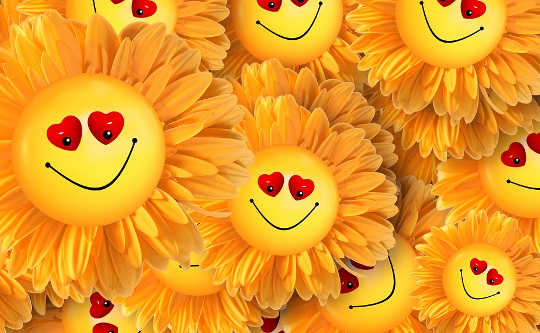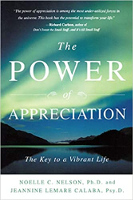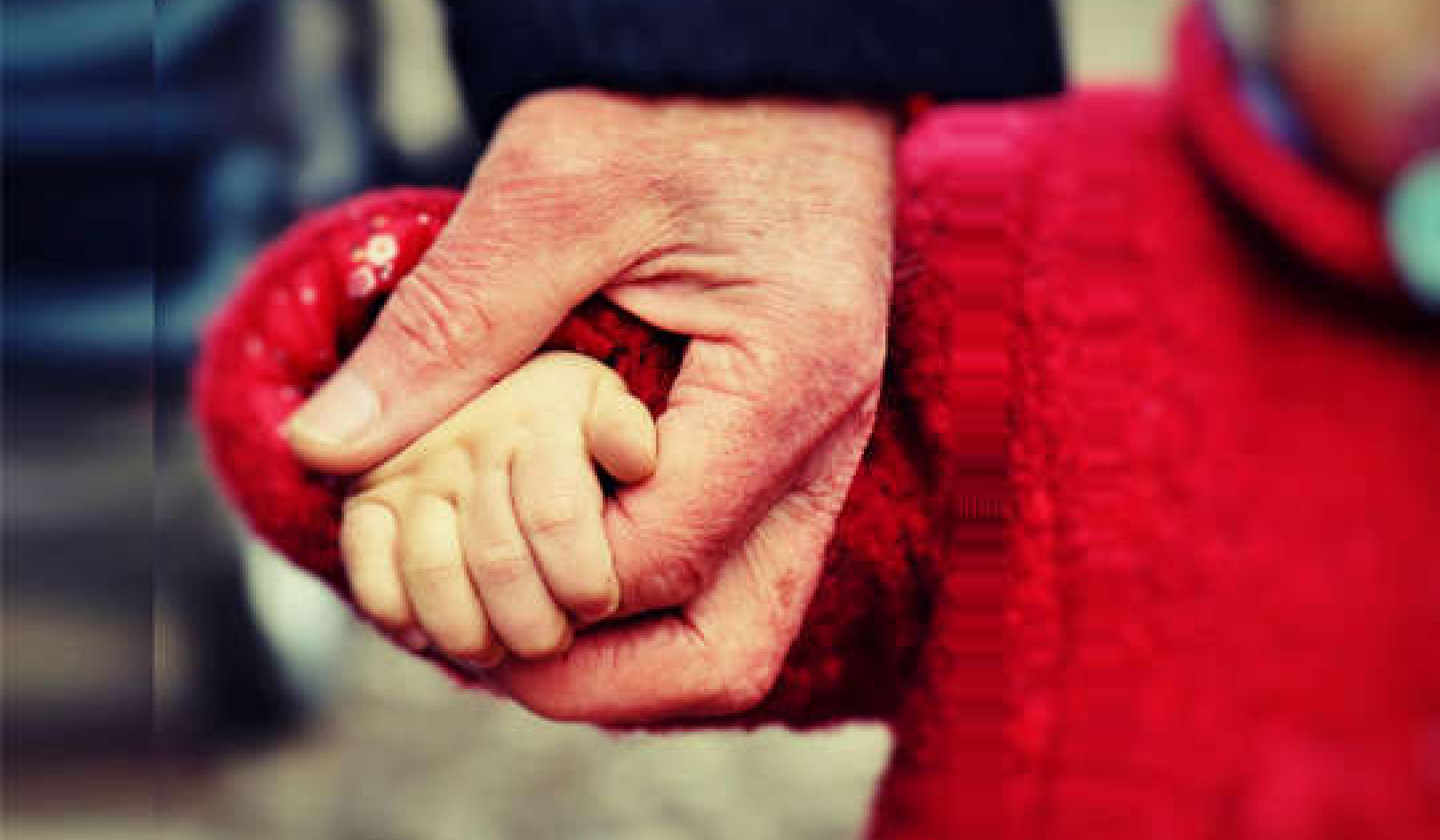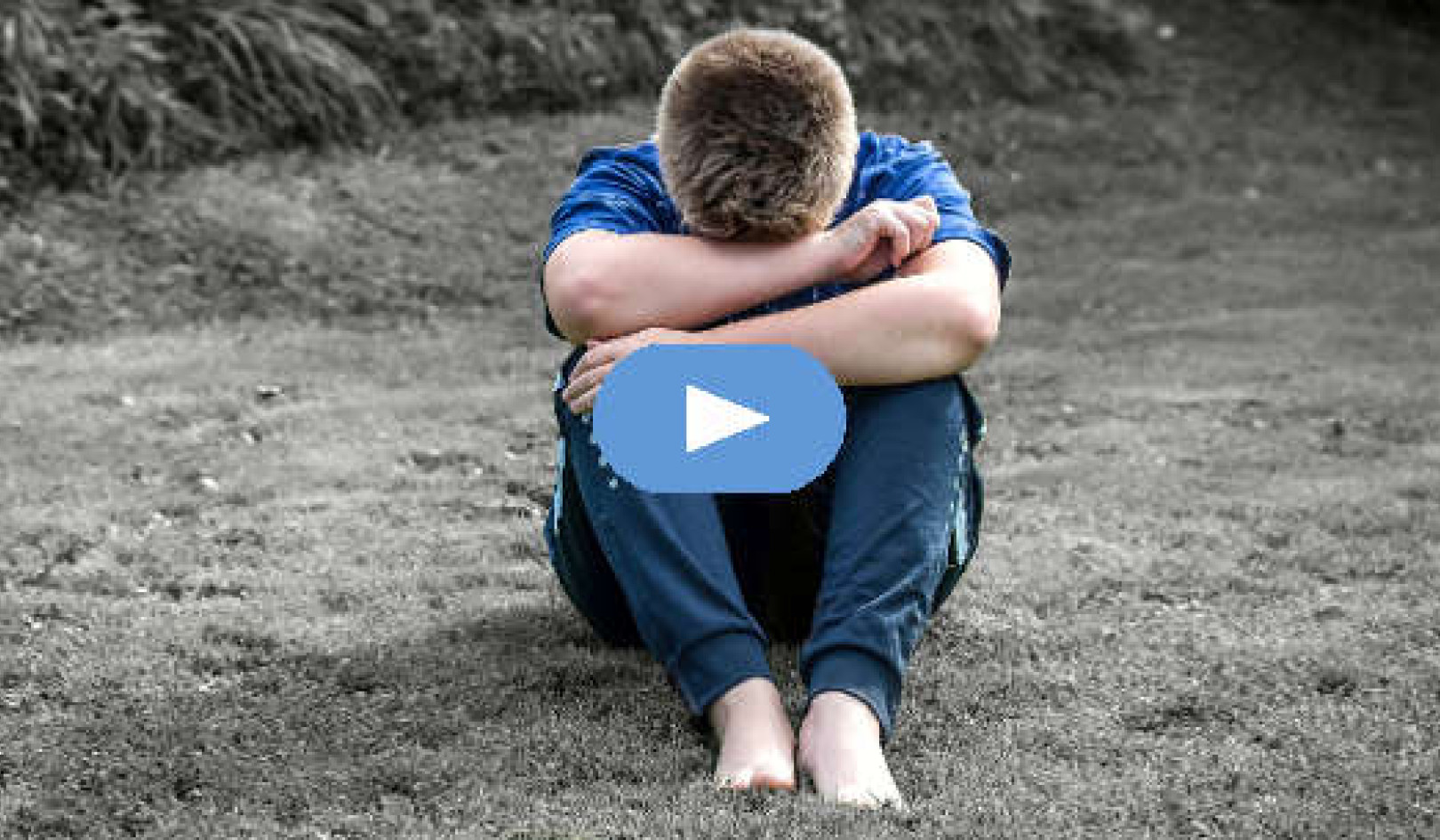
Image by Gerd Altmann
Appreciation is most powerful when it ceases to be something that you do only occasionally, and instead becomes your basic approach to life. When appreciation becomes the lens through which you view living, you can reap its incalculable benefits.
You must first be willing to overcome certain resistances to appreciating, those reasons you give yourself for why you shouldn't have to appreciate in a particular situation, or why it won't work, or how appreciation is just too hard in this or that circumstance. As Earl, an AG (Appreciators Group) member tells us, "The hardest thing for me was to be willing to appreciate someone when they're not appreciating me. I thought 'Why should I be the one to make the effort -- she's not.' It took me a long time to get over that."
Appreciation: Even When It's Not Convenient
You have to be willing to change patterns of thinking and feeling that may stand in the way of your being a full-time, hands-on, "this is how I do life no matter what" appreciator. You cannot use the power of appreciation only when it is convenient.
It's not easy. Our first and most automatic reactions are often antithetical to the appreciator's way: we want to blame, deny, lash out, avoid -- anything but appreciate. As one member of an Appreciators Group noted, "It was really hard at first, not to use hatred as a motivation anymore."
But if you want to enjoy the full range of appreciation's benefits, you must release negative patterns of thinking and feeling, and replace them with appreciative ones. You must be willing to take the high road.
Appreciation Is the High Road: It Takes Courage & Resolve
Appreciation takes courage and considerable resolve. It's the high road, and not everyone is willing to take it. Let's face it, when you choose thoughts of valuing and gratitude as your primary way of being, you are turning off the road well traveled. You are saying no to blame, to resentment, to revenge, to violence in any form -- from bad-mouthing others, to kicking the dog, to berating a person. You are saying no to victimhood, to martyrdom, to passing the buck, to criticism, and to demeaning yourself or others.
When you choose appreciation, you are saying yes to being your own best friend without becoming narcissistically self-centered, yes to seeing the best in others without being blind to their weaknesses, yes to perceiving the greatest possible good in all situations while being alert to what will and won't work for you. You are willing to stand up for yourself. You are willing to recognize and applaud what's good about yourself, what's good about others, and what's good about your life.
Appreciation takes discernment, forbearance, and just plain guts. The good news is, it's doable, because everyone -- without exception -- is capable of appreciating, of finding value, of being grateful.
There is something you are grateful for right now. What is it? To see how gratitude functions in your life right now, take a moment to complete the following test, developed by psychologist Robert A. Emmons and researchers at Southern Methodist University, as described in their article, "The Grateful Disposition: A Conceptual and Empirical Topography".
The Gratitude Questionnaire
Circle the number beside each statement that indicates how much you agree with the statement. (Note that the numbers for statements E and F reverse the order.)
1 = strongly disagree; 2 = disagree; 3 = slightly disagree; 4 = neutral; 5 = slightly agree; 6 = agree; 7 = strongly agree
A. I have so much in life to be thankful for. 1 2 3 4 5 6 7
B. If I had to list everything I felt grateful for, it would be a very long list. 1 2 3 4 5 6 7
C. I am grateful to a wide variety of people. 1 2 3 4 5 6 7
D. As I get older, I find myself more able to appreciate the people, events, and situations that have been part of my life history. 1 2 3 4 5 6 7
7 = strongly disagree; 6 = disagree; 5 = slightly disagree; 4 = neutral; 3 = slightly agree; 2 = agree; 1 = strongly agree
E. When I look at the world, I don't see much to be grateful for. 7 6 5 4 3 2 1
F. Long periods of time can go by before I feel grateful for something or to someone. 7 6 5 4 3 2 1
Now add up your scores for all six items. This number should be between six and forty-two. (Remember, for statements E and F, the numbers are reversed.) The higher your score, the more likely you are to be feeling gratitude.
Dr. Emmons notes, "Compared to their less grateful counterparts, grateful people are higher in positive emotions and life satisfaction, and lower in negative emotions such as depression, anxiety, and envy. They also appear to be more socially oriented -- they are more empathic, forgiving, helpful and supportive than are their less grateful counterparts."
No matter what your current level of gratitude, you can increase and develop your ability to appreciate.
Facing Resistance
 Even when you commit to the practice of appreciation, you're going to find reasons not to appreciate in this or that circumstance, and you're going to concoct rationalizations for why you don't think you should have to appreciate, or why it's downright impossible, in certain situations. On your journey to becoming an appreciator, these resistances are like so many dragons you must face and slay.
Even when you commit to the practice of appreciation, you're going to find reasons not to appreciate in this or that circumstance, and you're going to concoct rationalizations for why you don't think you should have to appreciate, or why it's downright impossible, in certain situations. On your journey to becoming an appreciator, these resistances are like so many dragons you must face and slay.
Teresa, an AG member, notes, "What's going to happen when people start appreciating and start manifesting more of whatever it is they desire -- dreams, love, visions -- is that they are going to tap into their resistances and it's going to seem like, at times, it's getting worse instead of better. From the very beginning of this group I have felt resistances on different levels and worked through them. And I think that's very important, that people know that they are going to feel resistances."
Most forms of resistance come under one of three headings:
- "You first."
- "You just don't get it."
- "Oh my gosh, it's getting worse."
Overcoming "You First" Resistance
It's very hard to appreciate someone when they are standing there, pig-headed in their righteousness, absolutely unwilling to concede the least little point. It takes immense force of character, when something is truly not your fault, to set aside all thoughts of blame and deliberately go about the business of appreciating. Your whole being cries out: "Why should I have to be the one to do the appreciating? They caused this: it's their fault, not mine. Where's the justice in this? They should go first. They should admit their responsibility and appreciate me."
In a perfect world, they would indeed do that. In this wonderful but imperfect world, however, you may have to wait a very long time -- a lifetime, in fact, and that may still not suffice -- for some people to get off their righteousness, take responsibility for their actions, and appreciate you.
Rather than wait an eternity before you enjoy the benefits of appreciation, recognize that "you first" is simply a resistance. Once you see yourself feeling this way, just step away from your righteousness, however justified, and start rooting around for those appreciative thoughts and feelings.
What matters is not who's right, what matters is how happy you can be. Appreciation will never vindicate you, but appreciation will flood you with happiness. The choice is yours.
Overcoming "You Just Don't Get It" Resistance
Another resistance to appreciation is "you just don't get it", sometimes expressed as, "This is a terrible situation, I can't feel appreciation here!"
Indeed, you may be faced with a truly awful situation, but that doesn't mean that appreciation has no place in it. On the contrary, appreciation is a powerful tool that you can use to work your way through crisis to a better place.
What often gets in your way with this form of resistance are your feelings. You may be feeling anger, rage, humiliation, shame, shock, fear, or despair. You may feel depressed and completely unmotivated. It may be very difficult to set aside these feelings. You may believe that the situation will have to change before your feelings can change, but -- as with wanting someone else to "go first" -- waiting for a situation to change may mean a very long wait.
There is no need to endure such pain. The solution is simple, but sometimes seems so hard. If you can summon up just one small, appreciative thought (without denying your feelings, because appreciation is not denial), you're on your way to transforming the situation. When you do this, the results are intense.
Overcoming "Oh My Gosh, It's Getting Worse" Resistance
When you first begin working with appreciation, it may seem like the situation is getting worse, or not budging at all. The first thing to happen when you begin to appreciate a loved one in the midst of a troubled relationship may be that more arguments ensue. Your thought may be, "This appreciation stuff doesn't work. Forget it."
When this happens, remember the saying, "When the going gets tough, the tough get going" and keep working on your appreciation. The increase in arguments may provide opportunities for greater clarification of issues. Your glaring differences may push you into therapy together, which will have beneficial effects. When you find the resolve to commit to appreciating no matter what, you have conquered one of the most challenging resistances.
Now that you're aware of the resistances you may encounter along the way, how do you become an appreciator? You start by appreciating life itself.
Appreciating Life & Looking Forward to Even More Joy
When you perceive and interpret people and events through the lens of appreciation, you increase the potential for good possibilities in your life. As Steven Covey notes in The Seven Habits of Highly Effective People, you become "opportunity-minded" as opposed to "problem-minded".
Once you begin to use the power of appreciation, more things, people, and situations to appreciate make their way to you. You find today very good indeed, and look forward to a tomorrow full of even more joy. As Dr. Emmons writes in his article "The Joy of Thanks," "My colleagues and I are finding that gratitude, which we define as a felt sense of wonder, thankfulness, and appreciation for life, is more than simply a pleasant emotion to experience or a polite sentiment to express. It is, or at least can be, a basic disposition, one that seems to make lives happier, healthier, more fulfilling, and even longer."
Raising Your Level of Life-Appreciation
Start by noticing what your current level of life-appreciation is. You can easily figure this out by listening to what you say when someone asks, "How are you? How's your day going?"
Is your reply something along the lines of, "Oh, you know, the usual. Another day, another dollar. Boy, that traffic was a bear -- I couldn't believe it took me an hour to get to my last appointment. Oh, and what a pain in the butt he was. Wanted me to look at this, and explain that, just a royal pain."
Or is it more like, "Fine, thanks. I was lucky -- I got to my appointment in time, even though traffic was heavy. My last appointment cracked me up. What a character! Wanted to know every last detail of what I was doing and why."
The second response expresses an optimistic and appreciative view of life. Both responses acknowledge the traffic and the "picky" nature of the last appointment. In an appreciative state of mind, you don't deny reality, you just choose to perceive and interpret it in a positive or appreciative manner. You choose to see the benefits to you in the events and people that come your way, and you are thankful for them. This does not mean that you never get angry, sad, or disappointed. You do, but you work through your negative emotions and return to a generally appreciative way of thinking and feeling.
Reprinted with permission of the publisher,
Beyond Words Publishing, Inc. ©2003.
www.beyondword.com
Article Source
The Power of Appreciation: The Key to a Vibrant Life
by Noelle C. Nelson & Jeannine Lemare Calaba.
 Research confirms that when people feel appreciated, good things happen to their minds, hearts, and bodies. The Power of Appreciation shows how to use this simple, always available tool to improve the quality of one’s own life and that of others. Based on a five-step approach to developing an appreciative mindset, this book includes scientific references, examples, worksheets, and quizzes to illustrate the value of appreciation, plus how to overcome resistance and roadblocks.
Research confirms that when people feel appreciated, good things happen to their minds, hearts, and bodies. The Power of Appreciation shows how to use this simple, always available tool to improve the quality of one’s own life and that of others. Based on a five-step approach to developing an appreciative mindset, this book includes scientific references, examples, worksheets, and quizzes to illustrate the value of appreciation, plus how to overcome resistance and roadblocks.
Info/Order this book. Also available as a Kindle edition.
More books by Noelle Nelson.
About the Authors

 Dr. Noelle C. Nelson is a noted author, therapist, and trial consultant. Her books include Everyday Miracles and Winner Takes All. Her syndicated "The Problem Solution Lady" radio program is heard on radio stations around the country. Visit her website at NoelleNelson.com
Dr. Noelle C. Nelson is a noted author, therapist, and trial consultant. Her books include Everyday Miracles and Winner Takes All. Her syndicated "The Problem Solution Lady" radio program is heard on radio stations around the country. Visit her website at NoelleNelson.com
Dr. Jeannine Lemare Calaba is a licensed clinical psychologist whose practice focuses on trauma and health psychology. Visit her website at JeannineLemareCalaba.com/
























